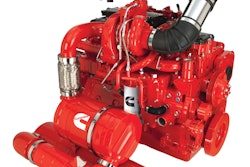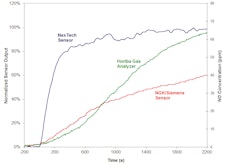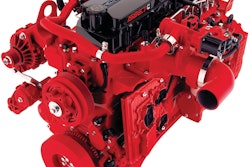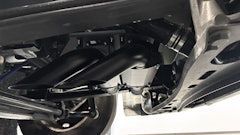The proposed 50% reduction in funding for the Diesel Emissions Reduction Act (DERA) in the Obama Administration’s 2013 proposed budget is “penny wise and pound foolish when it comes to one of the country’s most successful clean air programs,” Allen Schaeffer, Executive Director of the Diesel Technology Forum, says.
The 2013 EPA budget proposal would reduce DERA funding from $30 million in 2012 to $15 million in 2013. The landmark DERA grant program was originally authorized for five years as part of the Energy Policy Act of 2005 to fund upgrades and modernize the oldest, most polluting diesel engines, complementing the stringent emissions standards EPA set for new diesel engines beginning in 2007. DERA was overwhelmingly reauthorized for another five years by Congress and signed into law by President Obama in January 2011.
Successful DERA Program Faces Uncertain Future
“We fully understand the Obama Administration has a difficult and important mission in working to reduce federal spending and the national debt,” Schaeffer says. “However, DERA has already been part of this budget cutting process the past two years and last year the Administration proposed its termination. With reviews of National Ambient Air Quality Standards for both ozone and particulate matter on the near horizon, these changes are unfortunate and shortsighted and dramatically reduce the effectiveness of one of the most bipartisan and successful clean air programs in the past decade.
“DERA’s effectiveness has never been questioned. The bipartisan Diesel Emissions Reduction Act has allowed communities in all 50 states to upgrade older diesel school and transit buses, commercial trucks, locomotives and other equipment with modern and cleaner diesel engines and air filters.
“We challenge the Administration to identify any other program as effective as DERA, where $1 in government investment returns $13 worth of health and environmental benefits to the American people. This is a time to leverage and restoring funding for this program to help meet national clean air goals."
11 Million Older Diesel Engines Need To Be Upgraded
Schaeffer says “EPA indicates that DERA’s traditional competitive grant-based funding is being phased out in favor of a new rebate program and national revolving loan program targeted to communities with the greatest need such as near ports and goods-movement corridors.”
“While this new focus may prove helpful, it will be extremely marginalized given the overall cutting of the funding.
“There are an estimated 11 million existing older diesel engines and equipment that do not have the most recent clean diesel technology which has reduced emissions by 97%. What we need is a two-fold approach based on a solid economic plan that gets the nation’s contractors and truckers to invest in the new generation of the cleanest and most fuel efficient diesel engines ever made.
“Second, we need a fully-funded DERA program that provides assistance to owners of existing engines and equipment that still have productive value but would benefit from modernizing and upgrading. The new clean diesel engines and ultra-low sulfur diesel fuel have dramatically reduced emissions and helped improve air quality throughout the country,” Schaeffer says. “But it’s vital that we use this new technology to help clean up the 11 million older diesel engines still in use.”
Schaeffer added that EPA has worked closely with national environmental organizations, diesel manufacturers and health organizations in developing and enhancing DERA programs in recent years. In addition, he says both the Bush and Obama Administrations had provided important support for DERA in the past.



















